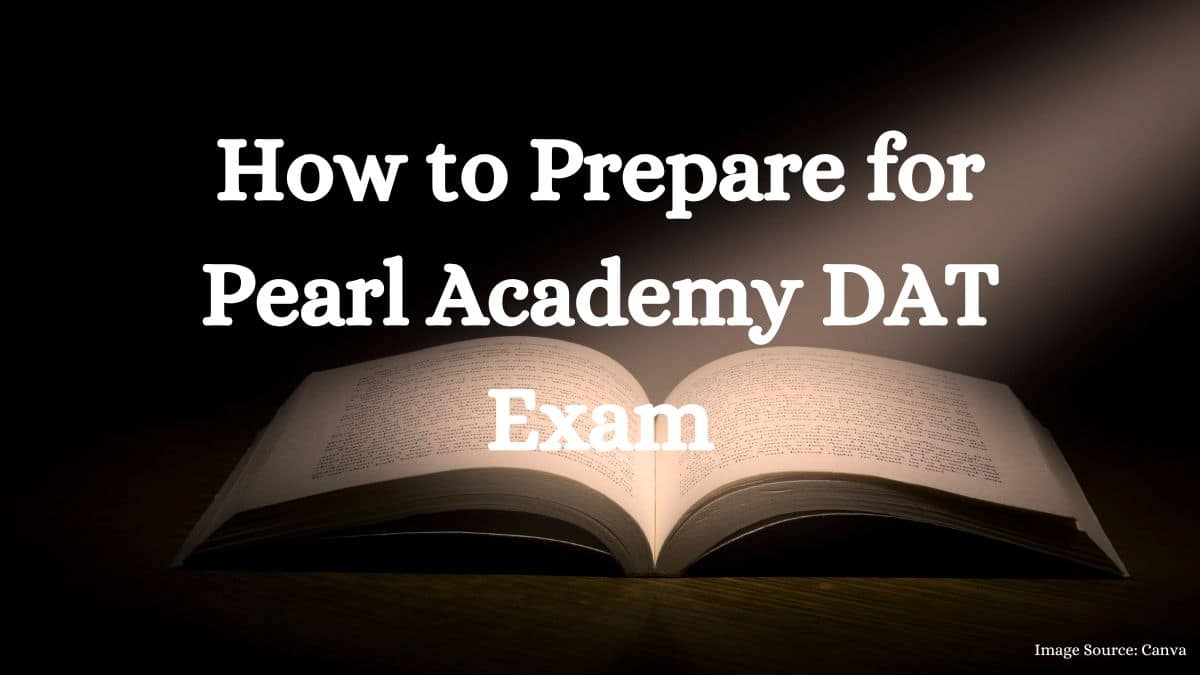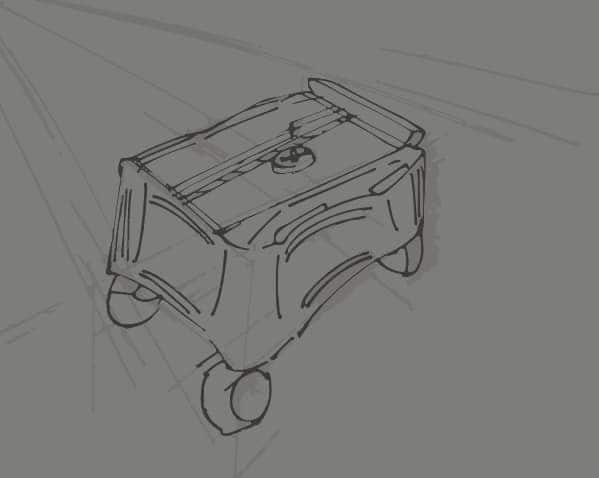UPES B.Des Admissions 2026
Last Date to Apply: 25th Feb | Ranked #45 amongst Universities in India by NIRF | Ranked #1 in Academic Reputation in India by QS World University Rankings
Fashion design is the specialty of Pearl Academy, a prominent Indian design school. Nonetheless, the university is one of the better-regarded design schools and provides undergraduate, graduate, and diploma degrees in a wide range of different subjects, such as product design, interior design, graphic design, etc. Students must pass the Pearl Academy entrance exam, which is divided into two parts: the Design Aptitude Test (DAT) and the General Proficiency Test (GPT), in order to be admitted. Out of both phases, the DAT (Design Aptitude Test) is aimed at testing a student’s design capabilities and includes Sketch aptitude and related skills. Topics that can assist students in getting ready for the Pearl Academy DAT portion are covered here.
This Story also Contains

According to the Pearl Academy exam pattern, The DAT section typically consists of 4-5 questions that test a student’s creativity and sketching skills. The exam is for 60 minutes and does not have negative markings. Each question is held for about 25 marks, and hence the total paper is 100 marks. These are the outlined topics from which questions may be asked as per previous year’s papers:
Out of the whole of the Pearl Academy syllabus, the Design Aptitude Test primarily aims to check a student’s exposure to the design world and his/her sketching abilities and ability to communicate ideas effectively. The outline of the Pearl Academy DAT Exam syllabus is as follows:
Skill and knowledge
Analytical and Design Sensibility
Aesthetics and Creativity
Observation and Lateral Thinking
General Awareness and Perception
Last Date to Apply: 25th Feb | Ranked #45 amongst Universities in India by NIRF | Ranked #1 in Academic Reputation in India by QS World University Rankings
No. 1 Design & Fashion Institute by ASSOCHAM, India Today, Outlook and The Week rankings
After analysing the Pearl Academy's question papers, it has been comprehended that the design entrance test is there to check a student’s practical and three-dimensional visualization skills. The focus is also on how well the student has enriched his/her subject knowledge and how well the student can apply it. Here are some suggested tips on how to prepare for the various types of questions:
This section aims to check a student’s ability to handle simple material like paper.
Paper folding and cutting techniques will come in handy here.
Expand your knowledge by exposing yourself to many types of handicrafts, and crafting techniques like origami, tangrams, kirigami, etc.
Practice with simple materials to gain a practical understanding of how these work.
Learn to visualize three dimensions. Learning multiple views like orthographic, isometric, etc, will help.
Students must know how to make simple shape nets like for a cube or cuboid, etc. This will help in ideating forms like packaging, etc.
Observation is key. Look at objects around you and think of different uses for a single object.
Visualization ability is highly important. Students may be asked to visualize a regular object in different sizes and scales and be asked to use that one object in different ways.
This framework of putting an object to another use, or seeing an object’s uses in different sizes and orientations is part of a design thinking tool called S.C.A.M.P.E.R. Students can research this tool to help gain better ideas and participate more creatively.
Researching preexisting designs is also helpful.
Students can also try speed sketching to improve their visual abilities and be able to come up with ideas instantly.
Leading Design College | Highest CTC: ₹12 LPA | Average CTC: ₹7.5 LPA | Scholarships for Deserving Students
Courses offered in- Fashion Design, Product Design, Communication Design, Interior & Spatial Design & Animation & VFX Design
This section deals with representations and Gestalt Principles.
Students must practice line drawings, meanings of line notations, emotions, etc.
It is an evocative section and often includes an assessment that is related to the assertion of feelings with lines, shapes, arrangement of shapes, etc.
This section involves creative methods like Typography and tonality.
Understanding word-figure associations, and alternate ways of expression is highly important for this section.
For example, the Bouba/Kiki effect: If asked which of these words sounds more bubbly and what sounds more pointy, most of us would choose Bouba as a bubbly word and Kiki as pointy.
Observing more such effects, the Mandella effect is also a notable non-verbal effect that causes logical confusion in the brain.
Exposure to such optical illusions and visual effects can help associate better.
This section typically involves making posters or mascots for an environmental cause, campaign, etc.
It tests the student’s general knowledge and ability to connect it to tasks that test their design thinking.
Learning basic poster layouts, and mascot figure sketches can be quite helpful for this topic.
Students must also be aware of colour theory and the application of colour.
It is duly helpful to refer to logos and taglines to enrich subject knowledge about principles that are used in design.
One of the sample questions from the Pearl Academy sample paper PDF is given below. The purpose of answering this question is to help students comprehend the kinds of questions that will be asked during the exam.
Draw any of the following objects from real life and it’s possible use if it was 20 times larger.
a)sharpener b) scissors c)Pen/pencil
For a) Sharpener for example, How to sketch?
Approach: From existing sharpeners, we know that a regular sharpener would be of these approximate dimensions: Length: 2-2.5cm
Breadth: 1.5cm
Height: 1-1.2cm
Total dimensions 20 times larger = (2.5+ 1.5+1)x 20
= Approximately L= 50cm , B= 30cm, H= 20cm
Using these approximate values, we can understand that the dimensions of a sharpener are larger than they usually would be of these dimensions. This gives us the exact size under which we must think, not mindless broad thinking like visualizing a sharpener as a house!
Thinking of a few ways in which this big sharpener can be used:
It is still a sharpener, with a bigger blade. It can hence be used to sharpen something still, tools for gardening, knives, etc.
Since it has a very distinct shape, it can be used very little in terms of storage, although it can be used as a small bed-tray table.
It serves best as a decoration piece or artefact at home and could also be converted into a toy car
An example of a sharpener car would be:

The best preparation books are recommended for Pearl Academy Entrance Exam preparation 2026:
NIFT/NID/IIFT Entrance Exam Guide by Surendra Kavimandan
NID Mock Test Series by DQ Labs
NID Workbook by R.S. Aggarwal
Alongside books, students should solve the Pearl Academy Entrance Exam Mock Test with Answers PDF and previous year sample papers to gain confidence and understand the exam format better.
Frequently Asked Questions (FAQs)
These are the following topics for Pearl Academy DAT preparation 2026:
Skill and knowledge
Analytical and Design Sensibility
Aesthetics and Creativity
Observation and Lateral Thinking
General Awareness and Perception
Begin practice early on, practice different sketching techniques
Refer to some of the best books for DAT Preparation
Learn to draw from surroundings: be mindful of the perspective and proportion
Speed sketch and increase the number of sketches in a limited time
The best book to refer for the Pearl Academy DAT section is Complete Guide to Perspective Drawing: From One-Point to Six-Point by Craig Attebary.
A total of 4 questions are asked for 25 marks each in the DAT section of the Pearl Academy. Hence, the paper is for 100 marks.
Gives students an idea of previously asked questions and shows what to expect.
Helps to judge the speed and time needed to solve one question, including ideation, thumbnail sketch, and final sketch
On Question asked by student community
Pearl Academy – MBA in Fashion & Lifestyle Business Management
Duration: 2 years
Campuses: New Delhi, Mumbai, Bengaluru
Eligibility: Bachelor’s degree in any discipline
Admission: Pearl Academy Entrance Exam + Interview
Fees: ~11.85 lakhs
Key Highlights
Global Collaborations – Partnerships with LDT Nagold (Germany) & Manchester Met (UK)
Practical Learning
hi ,
Pearl Academy's entrance exam for 2025 is structured to assess candidates' proficiency, creativity, and aptitude relevant to design and media courses. The exam comprises two primary components:
Hello Jhanvi,
Pearl Academy’s Bachelor of Design (B.Des) program typically consists of 8 semesters over 4 years.
Here are some important details :-
Hello,
Pearl Academy Entrance Exam is conducted six times a year. Pearl Academy has released the Pearl Academy 2022 application form for the July cycle in online mode - pearlacademy.com. The last date to fill out the Pearl Academy application form 2022 will be closed on July 21, 2022. You
Hello
The details pertaining to entrance test being conducted by Pearl Academy in May isn't updated yet at the official website, only information of March/April cycle exam is provided as of now though the entrance test is conducted in multiple cycles, if you're interested to appear then don't wait anymore
Among top 100 Universities Globally in the Times Higher Education (THE) Interdisciplinary Science Rankings 2026
1200+ Recruiters for Placements | 30+ International Collaborations | 45+ Advanced Labs and Studios
#14 in India by NIRF Ranking | Institution of Eminence by Govt. of India | Scholarships Available
Global internship and placement opportunities
Outstanding Track Record in Placements.
Avail upto 100% Merit Based Scholarships